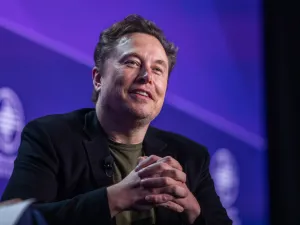Over the weekend, Elon Musk’s generative A.I. startup, xAI, announced that it had raised $6 billion in a venture funding round, bringing the OpenAI competitor’s private-market valuation to a whopping $24 billion. xAI’s fundraising round, a series B, is the largest in the history of venture capital, dwarfing Zynga’s previous record of $300 million (also a series B). xAI, officially launched in July of 2023, is now the 12th most valuable startup in the world, according to CB Insights, a private market research firm.
Sign Up For Our Daily Newsletter
SIGN UP
While xAI is still significantly smaller than OpenAI, which is currently valued at $80 billion and has garnered international attention for its rapid strides in A.I. (The company said this week it has begun training a new A.I. model more powerful than GPT-4o), Musk plans to invest the newly raised funds in purchasing 100,000 Nvidia H100 GPUs to train and operate a new supercomputer will make xAI’s chatbot, called “Grok,” the market leader. This GPU cluster, which Musk referred to as a “Gigafactory of Compute” in his presentation to investors, would be four times larger than existing GPU clusters but is based on Nvidia (NVDA)’s previous-generation hardware. Nvidia has since announced the much-improved Blackwell-based B100 and B200 GPUs, which will ship later this year.
Meanwhile, OpenAI is also looking to secure big-ticket investments. In February, OpenAI CEO Sam Altman revealed he is seeking as much as $7 trillion — more than the U.S.’s annual federal spending—to build the semiconductor infrastructure needed to supercharge A.I. growth. If Altman is right about how capital-intensive future A.I. technology be, both OpenAI and xAI are far short of the fundraising needed to achieve their goals.
Key investors behind xAI
xAI’s series B investors include a number of big names in venture capital, including Andreessen Horowitz and Sequoia Capital, as well as Cathie Wood’s Ark Investment Management and Saudi Prince Alwaleed bin Talal (an early investor in Twitter). Information about how much equities or voting power each investor holds isn’t publicly available.
Investors who participated in xAI’s previous funding rounds include Valor Equity Partners, Vy Capital and Fidelity Management & Research Company. The significant funding highlights the eagerness of global investors to capitalize on the A.I. boom. It comes on the heels of billions invested by Big Tech into their own A.I. ventures.
Musk founded xAI last year after saying Altman had “breached the founding agreement” of OpenAI by focusing too much on profit rather than humanitarian good. Musk was previously founding co-chairman at OpenAI but left in 2018 over disagreements on A.I. safety.


